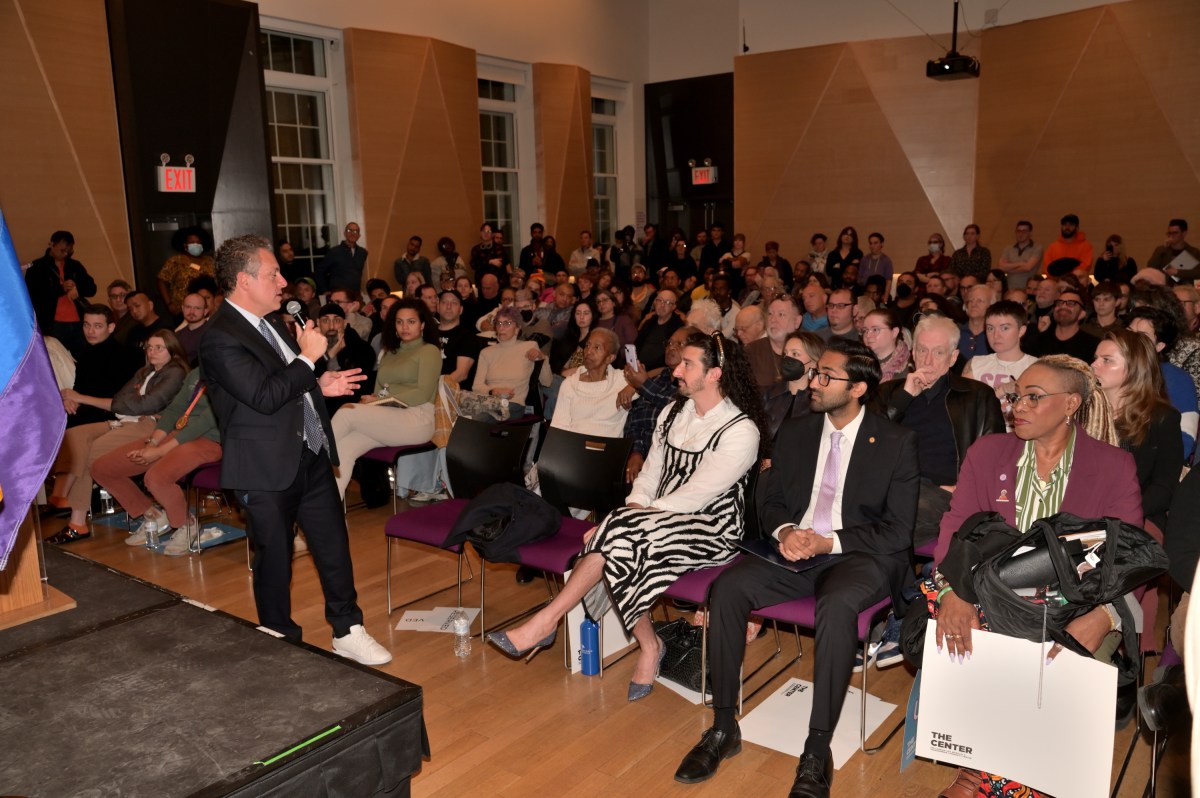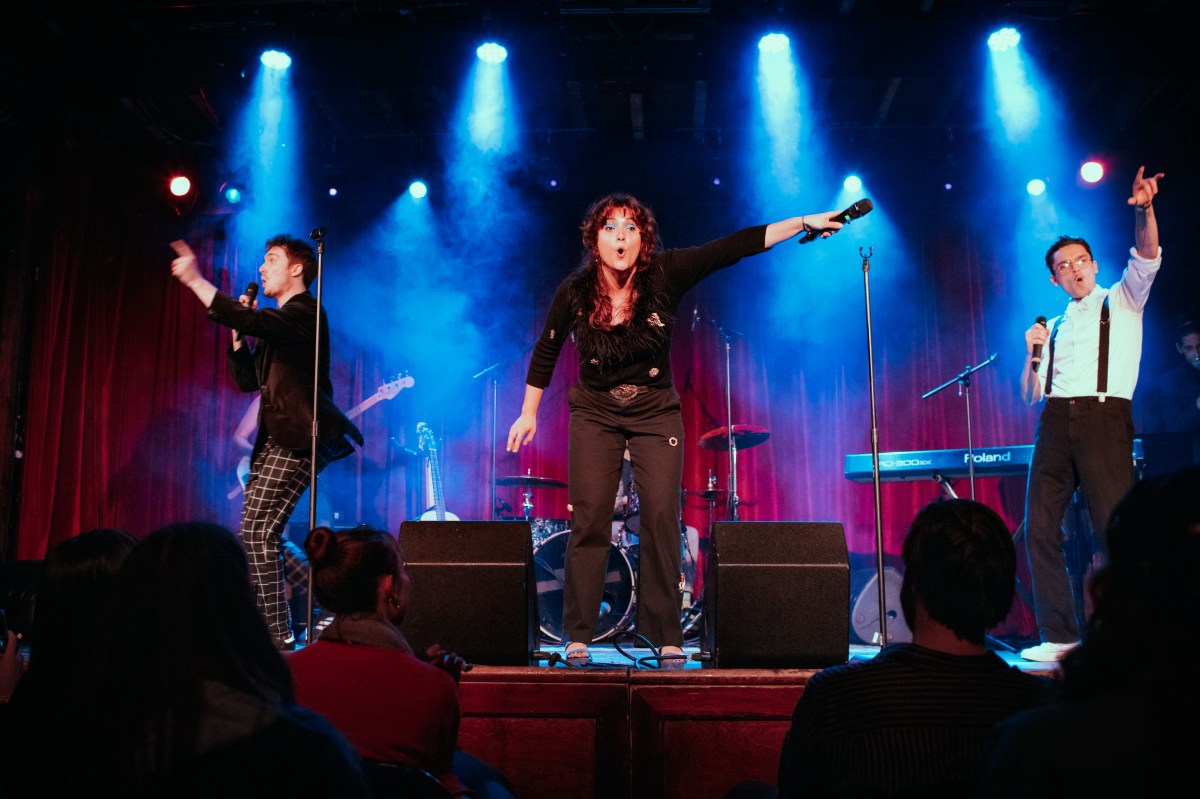By SCOTT HARRAH
BILLY ELLIOT: THE MUSICAL
Book & lyrics by Lee Hall
Music by Elton John
Directed by Stephen Daldry
Imperial Theater
249 W. 45th Street
212-239-6200, billyelliotmusical.com
The Broadway stage adaptation of the British film “Billy Elliot” definitely delivers a consistent level of emotional intensity, but it is also quite dark and rather long at almost three hours. Still, there’s much to love about this story of a working-class coalminer’s 11-year-old son who dreams of becoming a ballet dancer. Its subtext of hard-working, blue-collar people losing their jobs is especially relevant in modern-day America as we cope with the economic crisis.
Three young actors have been cast to rotate portraying the role of Billy, and for good reason. This would be an exhausting show for any adult, but for a child, it’s particularly demanding. Billy must display a wide range of emotions—from enthusiasm for dance to dealing with the loss of his mother and his father’s disapproval of ballet. The dancing, choreographed by Peter Darling, is also incredibly intense, but actors like Trent Kowalik definitely bring aplomb to all of Billy’s energetic dance movements, from tap to classical ballet.
The story is set in the 1984 when Margaret Thatcher was prime minister of Great Britain and coalminers’ unions were striking against her policies on the mines. This musical adaptation of the movie places much emphasis on the bleakness of coalminers’ lives in industrial England, and there are times when one almost needs a dictionary to translate some of the colloquial phrases. British actress Hadyn Gwynne, who’s excellent as Mrs. Wilkinson, Billy’s ballet teacher (she originated the role in the London production), is difficult to understand at times when she speaks in her thick, Northern English accent. Nonetheless, Gwynne gives an incandescent portrayal of a feisty, acerbic-tongued woman offering hope and an introduction to culture to a young boy with a dream of getting out of his harsh surroundings.
“Billy Elliot’s” setting in a 1980s English town in which people are out of work has many similarities with early 21st century America. Billy could easily be the son of an unemployed Pennsylvania or Ohio factory worker, or a Wall Street executive forced to take a buyout. The story simply hits home today, and any fears that “Billy Elliot”— a hit in both the United Kingdom and Australia—wouldn’t go over well with American audiences are unjustified. “Billy Elliot” may not be the usual operatic Andrew Lloyd Weber spectacle we’ve come to expect from British musicals, but it packs the same dramatic punch.
Unfortunately, there aren’t many memorable songs in Elton John and Lee Hall’s songbook other than “Merry Christmas, Maggie Thatcher,” a satirical number that spoofs the prime minister’s draconian policies and features cast members wearing Thatcher masks. Silly as it seems, they could easily be disillusioned Americans wearing George W. Bush masks. There’s also a wonderful dream sequence in which Billy dances ballet with his adult alter ego (Stephen Hanna) to Tchaikovsky’s “Swan Lake” and also flies above the stage on a wire, but this number is inexplicably placed too early in the show, and would have been more powerful if it had been saved for the end.
“Billy Elliot” goes more for stark realism than glitz, but there are a few colorful numbers, such as “Expressing Yourself,” when Billy and school pal Michael (alternated by Frank Dolce and David Bologna at different performances) dress in drag, with chorus members dancing around in oversized, cartoon-like dresses. The song is cute, but rather pointless.
Despite the forgettable score of soft-rock ballads and union anthems, “Billy Elliot” has a solid storyline, and it manages to sustain one’s interest for the duration of the show. Gregory Jbara is superb as Billy’s widower father, as is veteran Carole Shelley as his grandmother. Santino Fontana is also wonderful as Billy’s argumentative older brother, Tony.
The musical’s narrative focus on miners’ rights and Thatcher sometimes diminishes the uplifting, life-affirming joy that was so prevalent in the film. Director Stephen Daldry—who also directed the 2000 film—gets everyone to work together as a cohesive unit. The performances are realistic, and the mediocre songs thankfully never become too mired in sentimentality, except for the somewhat sappy “Dear Billy,” in which Billy sings with his dead mother (Leah Hocking). Despite such minor flaws, “Billy Elliot” is one of the most richly textured, complex musicals of the 2008/2009 season.




































